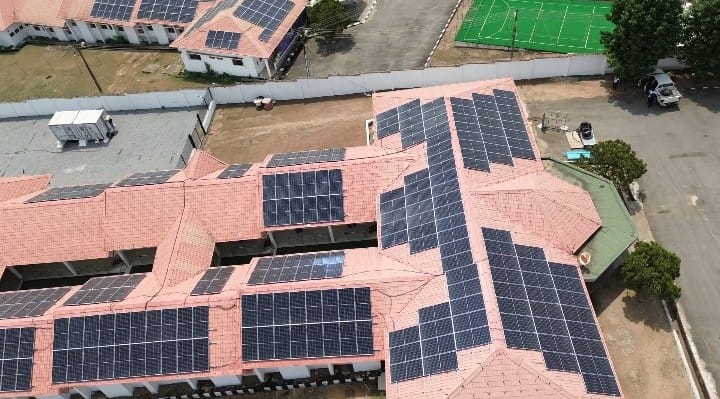Nigeria’s power grid is fragile and power outages are frequent. Nearly 140 failures have occurred in the past 10 years. In some areas, the daily stable power supply time is only 5-6 hours, which makes residents’ demand for stable power supply extremely urgent. As a country with a population of more than 200 million, Nigeria’s power generation and distribution capacity accounts for only one-third of its installed capacity of 13.5GW. To fully meet its power demand, it needs to install about 30GW of power generation facilities. From the perspective of energy structure, about 70% of the current power generation comes from thermal power and 30% from hydropower, but most of the power generation equipment is old and lacks maintenance. At the same time, it also faces problems such as insufficient natural gas supply and serious power theft.
Due to the shortage of power supply, most government agencies, institutions and more than 97% of enterprises in Nigeria have to rely on self-provided generators to meet 40% of their power needs. In Africa, there are still more than 600 million people living in an environment without electricity or unstable power supply, so education has become a luxury. The mission of SCU is to break this dilemma through clean energy technology and provide more people with stable and reliable power supply.
The electricity dilemma of Nigerian schools: the dual pressure of high electricity prices and frequent power outages
School background:
A secondary school in Nigeria provides education for hundreds of students in surrounding villages. In the past decade, the school has relied on unstable power grids and diesel generators, with power outages of more than 10 hours a day, and electricity bills account for 50% of the annual budget.
Pain points:
- High electricity prices: Nigeria’s municipal electricity prices are high, and the cost of electricity during peak hours soars;
- Power shortage: The municipal power grid only supplies electricity for 4 hours a day, and the maintenance cost of diesel generators is high;
- Peak-valley contradiction: The peak power consumption is seriously mismatched with the power grid supply capacity, and teaching is often interrupted due to power outages.

“We have to rely on diesel generators to make up for the shortfall. But the fuel cost swallowed up half of the school’s budget, and we still couldn’t guarantee all-day power supply. The 10 computers donated with great difficulty became decorations due to power outages, and the students have not had a complete computer class so far.” – School Principal
Solar Energy Storage Solution Achieves Power Freedom
150kWp photovoltaic panels, with an energy storage system, 150kW PCS, 150kW MPPT, 500kWh lithium-ion battery, SCU provides a total of 2 set 10ft energy storage containers.
Innovation and breakthrough:
- Photovoltaic consumption: photovoltaic power is used first, and the unconsumed energy is charged for energy storage to reduce energy waste;
- Peak shaving and valley filling: energy storage power supply is used first during peak electricity price periods to reduce the cost of purchasing electricity from the power grid, and the power grid is used to recharge the battery during low electricity price periods at night, saving 65% of electricity bills on average per day.
- Reliability design: SCU energy storage system has passed multiple international certifications and is equipped with an intelligent air cooling system to ensure stable operation in extreme environments;
- Modular design: The modular energy storage system supports future expansion.

Implementation challenges: from technology empowerment to energy awareness awakening
- Cognitive breakthrough of peak shaving and valley filling
In the early stage, the school adhered to the traditional logic of “storing when there is electricity and using when there is no electricity”. The SCU team demonstrated the cost-saving effect of the peak-valley scheduling strategy through simulation data comparison; - Extreme test of high temperature environment
The battery compartment has a built-in corrosion-resistant coating and dust filter to resist sandstorms and high humidity;
The remote monitoring platform collects temperature data regularly and automatically triggers forced heat dissipation.

Every kilowatt-hour of electricity is rewriting the fate of Africa
Africa does not lack light resources, but it lacks systematic solutions to transform resources into value. SCU’s vision is to make every photovoltaic power station the cornerstone of Africa’s energy independence and turn every kilowatt-hour of clean electricity into a kinetic energy for sustainable development. Our energy storage technology ensures a stable power supply to schools, businesses, and communities and improves productivity day and night. SCU aims to promote Africa’s energy transformation through modular and scalable solutions, proving that clean energy is not only sustainable but also the actual foundation for growth.

